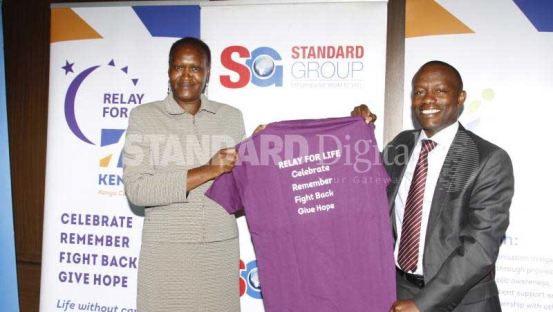×
The Standard e-Paper
Smart Minds Choose Us

More than 5,000 participants are expected to attend a Kenya Cancer Association event scheduled for the end of the month.
The association's Executive Director Deborah Olwal-Modi said the event would bring together various players, including patients, survivors, and care givers of various forms of cancer.